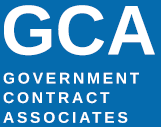Once DCAA has taken a formal position relative to the unallowability of a particular cost (whether it be anallowability issue per FAR cost principles or an allocation issue) it is supposed to issue a Formal Noticeof Disallowability – commonly known as a Form 1. The Form 1 serves as a notice of suspension or disallowance of costs under cost reimbursement contracts and after DCAA receives notice of the contractor’s acknowledgement of receipt, the form is distributed to buying offices (for more detail on Form1, see DCAA Contract Audit Manual, Chapter 6-900).
Once DCAA is ready to issue a Form 1 you can be assured that it is DCAA’s final position and further effort to change their mind is fruitless. Though itused to issue Form 1s more frequently, DCAA will now commonly consult with the ACO before issuing one. Though the ACO will often defer to DCAA since they are the authorized representative of the CO for purposes of issuing a Form 1, we find, eventoday, the ACO often takes an active interest in hearing out the contractor when approached and we have repeatedly seen the CO either take a different position or find a mutually satisfactory solution with DCAA concurrence. The CO can learn the contractor’s position either through reading the Contractor’sComment sections of the audit report or by the contractor preparing a separate position paper. Both approaches are recommended.
Just as recent publicity has made audit supervisors gun shy about challenging their auditors position,similar reluctance has affected ACO’s willingness tochange an audit opinion. Recent audit guidelines have been established to encourage auditors, on their own without supervisory review, to go to investigative services when they believe ACO are improperly challenging their position. Such actions, along with ACO’s tendency to rubberstamp DCAA position because of lack of accounting expertise or shortage of support staff, has significantly lessened the opportunities to have ACOs overturn audit positions.But in spite of these obstacles, we are beginning tosee a reaction to such fears and more instances of accommodation to reach mutually acceptable resolution of audit issues.
Without a comprehensive written rebuttal, the contractor may find itself faced with a CO that does not budge from DCAA’s position. In order to write an effective rebuttal you should have a clear understanding of the basis upon which DCAA has formulated its opinion and the results of any negotiation largely depends on how well you have done your homework beforehand. Do not go to the negotiation with just general statements; be prepared to discuss specifics, regulations and board/court decisions when applicable. Assume the DCAA auditor will be equally prepared. Be prepared to answer questions, know the facts and understand the weaknesses and merits of your position. Be prepared to question the auditor and do not hesitate to tactfully put them on the defensive –remember, you are trying to persuade the CO to adopt your position so you must demonstrate it makes more sense than the auditor’s.
If a good argument is put forth by the contractor, the CO will often obtain advice in-house from their price analysts and legal counsel. If the dollar value is significant, the issue may even be elevated to the special Overhead Center in the Defense Contract Management Agency tasked with resolving high priority cost issues. If the contractor’s position has merit, the ACO commonly seeks a position to satisfy both DCAA and the contractor rather than go through the disputes process and avoid issuance of a Form 1.
© 2026 Government Contract Associates. All Rights Reserved.
